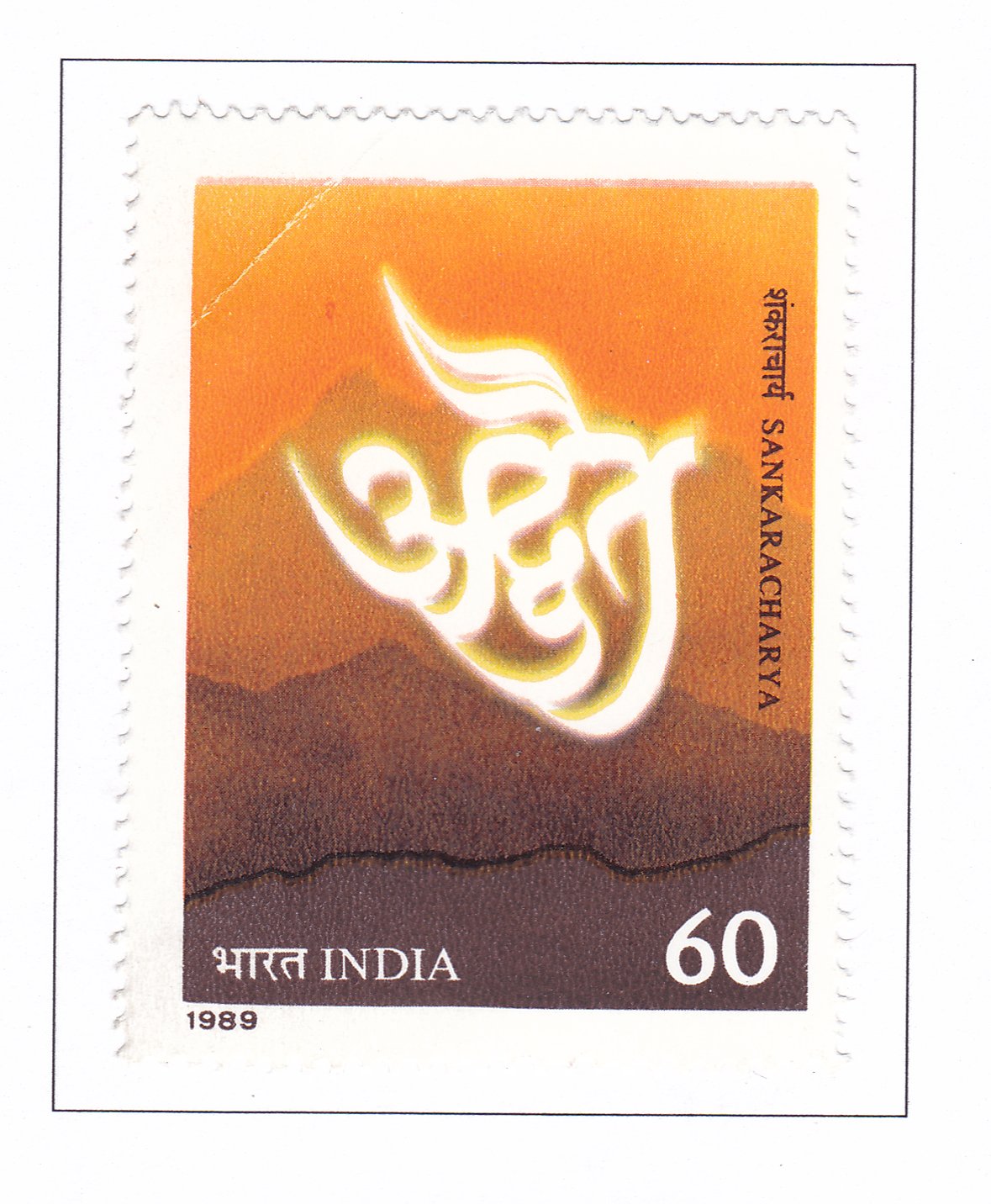Sankaracharya

Technical Data
| Date of Issue | May 17, 1989 |
|---|---|
| Denomination | 60 p |
| Quantity | 1,500,000 |
| Perforation | comb 14 |
| Printer | Security Printing Press, Nashik |
| Watermark | No Watermark |
| Colors | Multicolor |
| Catalog Codes |
Michel IN 1220 Stamp Number IN 1279 Yvert et Tellier IN 1022 Stanley Gibbons IN 1371 |
| Themes | Commemoration | Signs |
Commemorative Stamp Set: Adi Sankaracharya
Design Elements:
The stamp set features a portrait of Adi Sankaracharya, adorned in traditional attire, with symbols representing his deep spiritual influence. It includes imagery depicting him mastering the Vedas, engaging in debates, and promoting Sanskrit through his poetry and teachings.
Cultural and Historical Significance:
Adi Sankaracharya, born in 788 in Kaladi, Kerala, profoundly influenced Indian philosophy, spirituality, and culture. He revitalized Advaita Vedanta, emphasizing the unity of the soul (Jeevathma) with the divine (Paramathma), and advocated for a spiritual outlook beyond rituals and sects.
Usage:
This stamp set commemorates Adi Sankaracharya’s contributions to Indian thought, philosophy, and spiritual unity. It serves to educate on his teachings of Advaita Vedanta, his role in Sanskrit revitalization, and his efforts to harmonize diverse religious beliefs.
Importance of the Commemorative Stamp Set:
Issuing this stamp set honors Adi Sankaracharya’s enduring legacy as a philosopher, poet, and spiritual reformer. It highlights his efforts to unify India spiritually and his timeless teachings that continue to influence Indian culture and philosophy.
Example of the Stamp Design:
The stamps depict key moments from Adi Sankaracharya’s life, such as his travels across India, philosophical debates, and poetic compositions. They include symbols representing Advaita philosophy, Vedic knowledge, and his advocacy for spiritual unity.
Significance:
Adi Sankaracharya’s teachings continue to inspire spiritual seekers and scholars worldwide, emphasizing the unity of existence and the pursuit of transcendental knowledge over mere ritualistic practices. His legacy underscores the richness of Indian philosophical traditions and their relevance in contemporary times.
